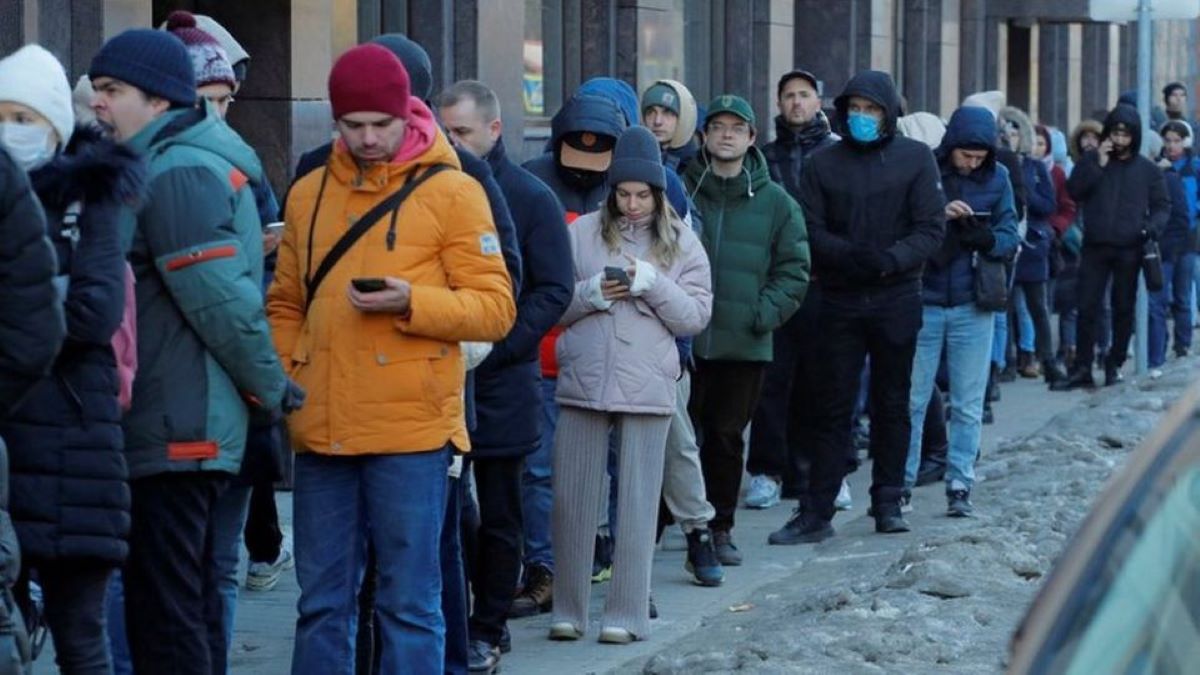The Russian invasion of Ukraine —and the harsh sanctions imposed by the West— are already having serious economic consequences in the country led by Vladimir Putin.
Early this Monday the value of the ruble, the local currency, falling more than one 30 %.
To face the crisis, the Central Bank of Russia doubled its interest rate, raising it from 9.5% to 20%, in an attempt to contain the devaluation of its currency.
The collapse in the value of the ruble erodes the purchasing power of the currency and could hurt the savings of Russians, who they are already showing some signs of concern.
This weekend, hundreds of people stood in long queues in different cities of the country to access ATMs and exchange houses, and thus be able to withdraw money in cash .
The Russians are worried that their cards bank stops working or that limits are established on the amount of cash they can withdraw.

 Getty Images
Getty ImagesPrior to an emergency meeting between President Putin and his economic advisers on Monday, Kremlin spokesman Dmitry Peskov said : “These are severe sanctions, they are problematic, but Russia has the necessary potential to compensate for the damage.”
In addition, he assured that Moscow will respond with its own sanctions.
Along the same lines, the Central Bank called for calm and said that it has “the necessary resources and tools to maintain financial stability”.
Sanctions
In the last d ias, the West has applied harsh sanctions to Russia in response to the invasion of Ukraine.
One of the strongest is the removal of several Russian banks from the SWIFT network, the main international payment system. Russia relies heavily on this system for its oil and gas exports.
In addition, the United Kingdom, the United States and the European Union prohibited dealings with the Central Bank, state investment funds and the Ministry of Finance.


Russia has around US$630 billion in reserves, accumulated from high oil and gas prices.
But because much of this money is stored in foreign currencies such as the dollar, euro and sterling, in addition to gold, a Western ban on trading with the Russian Central Bank restricts Moscow’s access to cash.
Last week, the Central Bank of Russia was forced to increase the amount of money it supplies to ATMs after the demand for cash reached the highest level since March 2020.
Analysis by Theo Leggett, BBC Business Correspondent
The sanctions imposed by the European Union, the United States, the United Kingdom and others are unprecedented.
It is one thing to block the foreign exchange reserves of a country like Iran or Venezuela, and quite another to act against Russia, a country with an important role in world trade and a key supplier of oil and gas.
